Affirmative Action, at least as we have known it since the end of the Civil Rights era, may soon vanish if the Students for Fair Admissions (S.F.F.A.), a group challenging admissions policies at Harvard and the University of North Carolina in the latest U.S. Supreme Court term, has it way.
During oral arguments last fall, the S.F.F.A. averred that these prestigious predominantly white institutions’ desire for "diversity" is “grievously wrong” and produces “crude stereotyping.”
Sigh...
To begin, today's blog is not another swipe at those who didn't vote for Hillary Clinton in 2016, a move that allowed President Donald Trump to appoint three conservatives, Neil Gorsuch, Brett Kavanaugh, and Amy Coney Barrett, to tilt the court 6-3 to the ideological right. No, my purpose today is to remind that long before we ever could have imagined a Trump presidency, the seeds to eliminate race as a factor in hiring, admissions, and contracting was already well under way across the United States.
Former President Trump after introducing then Supreme Court nominee Brett Kavanaugh in 2018…
In fact, from the time that Democratic Presidents John F. Kennedy and Lyndon B. Johnson first started issuing executive orders in the 1960's to affirmatively remedy past discrimination against Blacks, many whites across the ideological spectrum immediately cried "foul" and introduced what I often call a legal oxymoron, "reverse discrimination against whites," into the American English lexicon. Oxymoron, I submit, because when, in the history of ever, have Black folks had the power to prevent white folks, en masse, from attending school, obtaining bank loans, buying property, eating in a restaurant, trying on clothes, or being treated at a hospital?
Black folks never had such power...
Digressing, while the Kennedy, Johnson, and (Richard) Nixon administrations directed federal agencies and publicly funded institutions to initiate measures to increase minority hiring and enrollment, from the first, these efforts were called "quotas" and criticized as promoting less qualified Black candidates over whites—even when the data proved that objective measures were often identical or in many cases, higher for talented Black candidates.
President Lyndon B. Johnson, speaking in favor of minority set aside programs at Howard University in 1965, said: “You do not take a person who, for years, has been hobbled by chains and liberate him, bring him up to the starting line of a race and then say, ‘You are free to compete with all the others,’ and still justly believe that you have been completely fair.”
One of the first serious legal challenges to Affirmative Action occurred in 1978 when the United States Supreme Court rendered its decision in the Bakke vs. the University of California Board of Regents case. Allan Bakke, the petitioner, was born in 1940 and raised in segregated Miami, Florida, where he graduated from then all-white Coral Gables High School before attending the University of Minnesota. During college, Bakke enrolled in the Naval Reserve Officers Training Corps (ROTC) and upon graduation, was commissioned and later served a tour of duty in Vietnam, where he rose to the rank of Captain.
After leaving the military in 1972, Bakke, then 32 years old, applied for admission to medical school at both the University of Southern California and Northwestern, two private schools that rejected him, in part, due to his age. In 1973, Bakke applied to medical school at the relatively new University of California-Davis, a public school, and according to the admissions committee, submitted numerical qualifications which included a 3.44 GPA and a Medical College Admissions Test (MCAT) score that placed him in the top three percent of applicants.
Despite his qualifications, Bakke was denied admission again, in part, to his age. But what was of particular consternation to Bakke was the fact that UC-Davis had a special admissions program that allowed Blacks and Hispanic applicants with allegedly lower numerical qualifications to compete for 16 seats that were set aside strictly for racial minority admission.
Bakke sued in state and later in federal court and argued that UC-Davis' program violated the Equal Protection Clause of the 14th Amendment to the Constitution. The lower court held that UC-Davis’ program ostensibly was a quota system that inured benefits to racial minorities, further holding that but for the set asides, that Bakke likely would have been admitted.
Allan Bakke (l) was born in 1940, Charles Hobbs was born in 1940. Bakke graduated from segregated Miami Coral Gables High School in 1958, Hobbs graduated literally down the street at segregated Miami Carver High School in 1958. Bakke fought as a Marine Captain in Vietnam, Hobbs fought as an Army Captain in Vietnam. Bakke believed that “reverse discrimination” prevented him from being accepted into the UC-Davis Medical School, Hobbs would often state to his son and namesake that many whites will never get over the age-old lie that whites are intellectually, physically, and morally superior to Black people.
On appeal, in 1978, the U.S. Supreme Court held that the UC-Davis program was unconstitutional on the grounds that it excluded applicants on account of race. Still, while the Bakke decision eliminated exclusions based solely upon race, it left the option open for public institutions to use race as “a” factor in admissions—a status that remained in effect in California until Ward Connerly, a "Black" businessman, led the movement to pass Proposition 209 in 1996; Prop 209 eliminated the use of “race, sex, color, ethnicity, or national origin” in California university admissions.
While Bakke later earned a medical degree from UC-Davis in 1982, the U.S. Supreme Court has occasionally considered overturning race as even a factor for consideration ever since, most recently in the 2016 Fisher vs. University of Texas case which upheld Affirmative Action for a time.
But alas, Affirmative Action's time may soon be up when considering the Supreme Court's 6-3 conservative majority; Justice Clarence Thomas, an outspoken opponent of Affirmative Action for decades, dimssively derided arguments in favor of student body diversity during oral arguments last fall by stating, “I don’t have a clue what (diversity) means.” Thomas's insouciance comes as no surprise when considering that he has candidly admitted that his own admission to Yale Law—and appointment to the Supreme Court at the age of 43 despite having very limited judicial experience—were both due to his race more than his objective qualifications, but that his own advancement doesn't mean that race based advancing is right! 😠
Justice Clarence Thomas speaking at my law school alma mater, the University of Florida, in 2020…
With Thomas and fellow Justice Samuel Alito being the senior conservative votes on the court, and cognizant that junior conservative Justices Gorsuch, Kavanaugh, and Coney-Barrett have all voted in lock-step with the pair on issues ranging from crime and punishment to abortion, it is likely that the requisite five votes to eliminate Affirmative Action are in place; just as I predicted that federal abortion rights would be eliminated this time last year, I am convinced that Affirmative Action will be eliminated when the pronouncements are given this June.
On the one hand, what angers me is that with regards to prestigious public PWI's like the University of North Carolina and the University of Florida, is knowing that those schools are funded by tax revenue derived from ALL citizens and tourists in those states—not just white ones. Indeed, there's something perverse by the idea that Black folks can help fund a school, but their kids and grandkids may not get accepted—unless they are a football or basketball player that helps bring in even more revenue to "State U."
Affirmative Action opponents don't mind if talented Black athletes with low grades and test scores are admitted to play ball and make money for their favorite PWI schools—they just don't like too many of the academically qualified Black students to enroll…
On the other hand, doors closing at so-called prestigious predominantly white schools will lead to talented Black students applying to HBCU's, schools that still produce the overwhelming majority of Black doctors, lawyers, pharmacists, and engineers even during the Affirmative Action era.
Lest we forget…




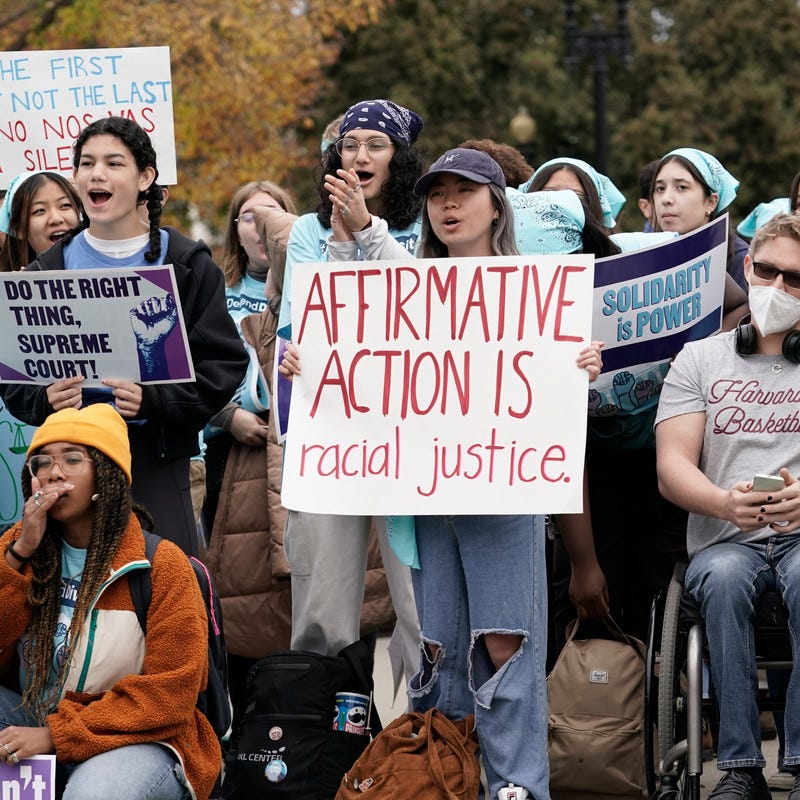



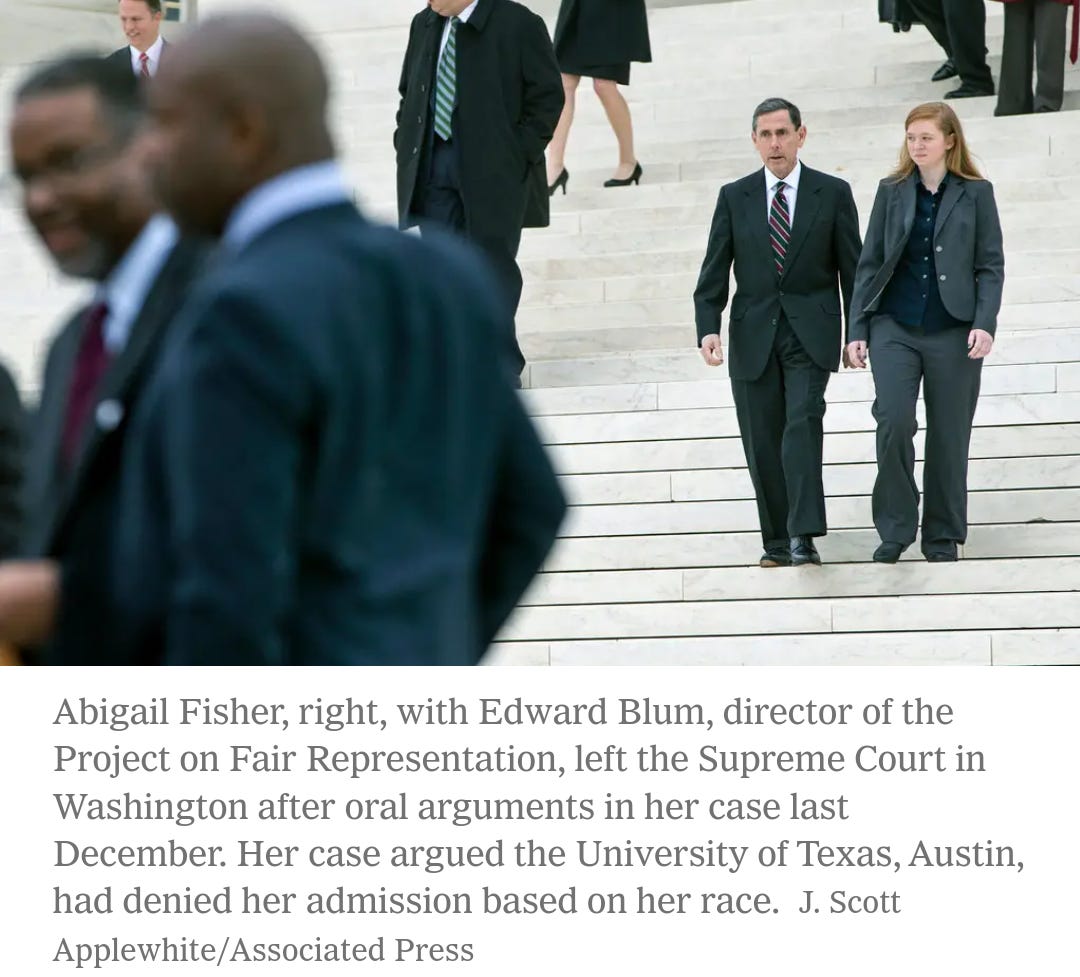
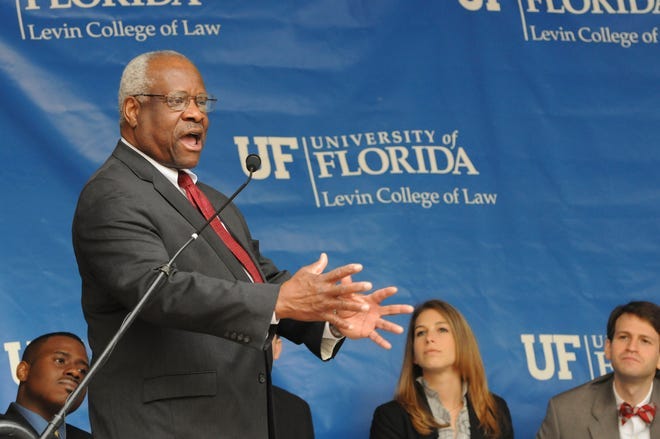
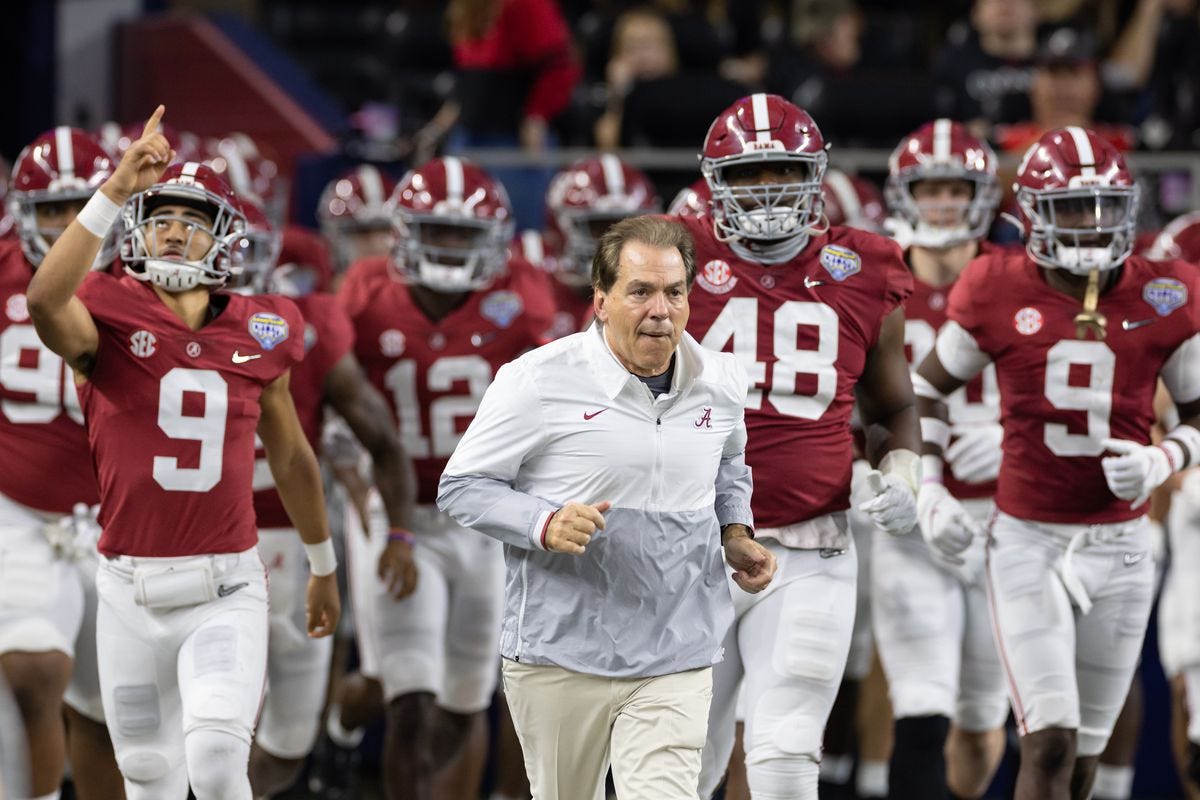
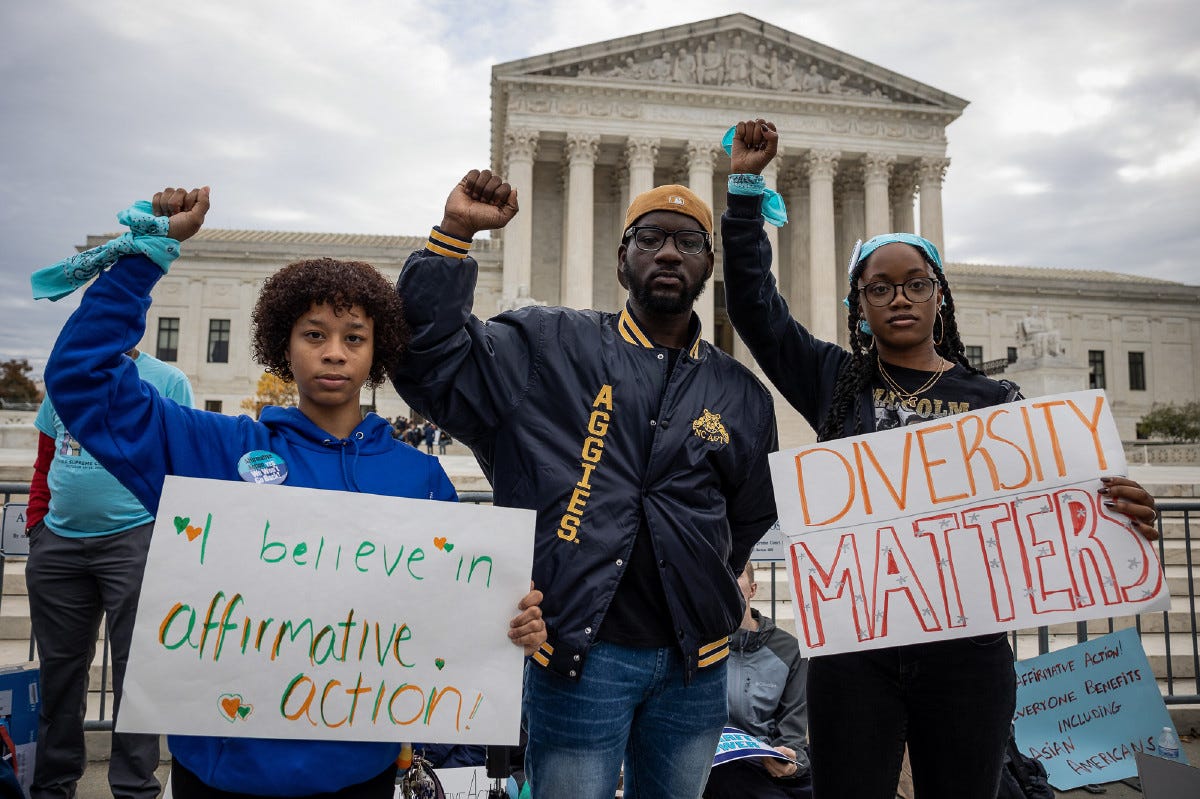
Once Affirmative Action is overturned, will there be challenges to preferences given to veterans and their spouses in hiring and education? Just wondering. 🤔